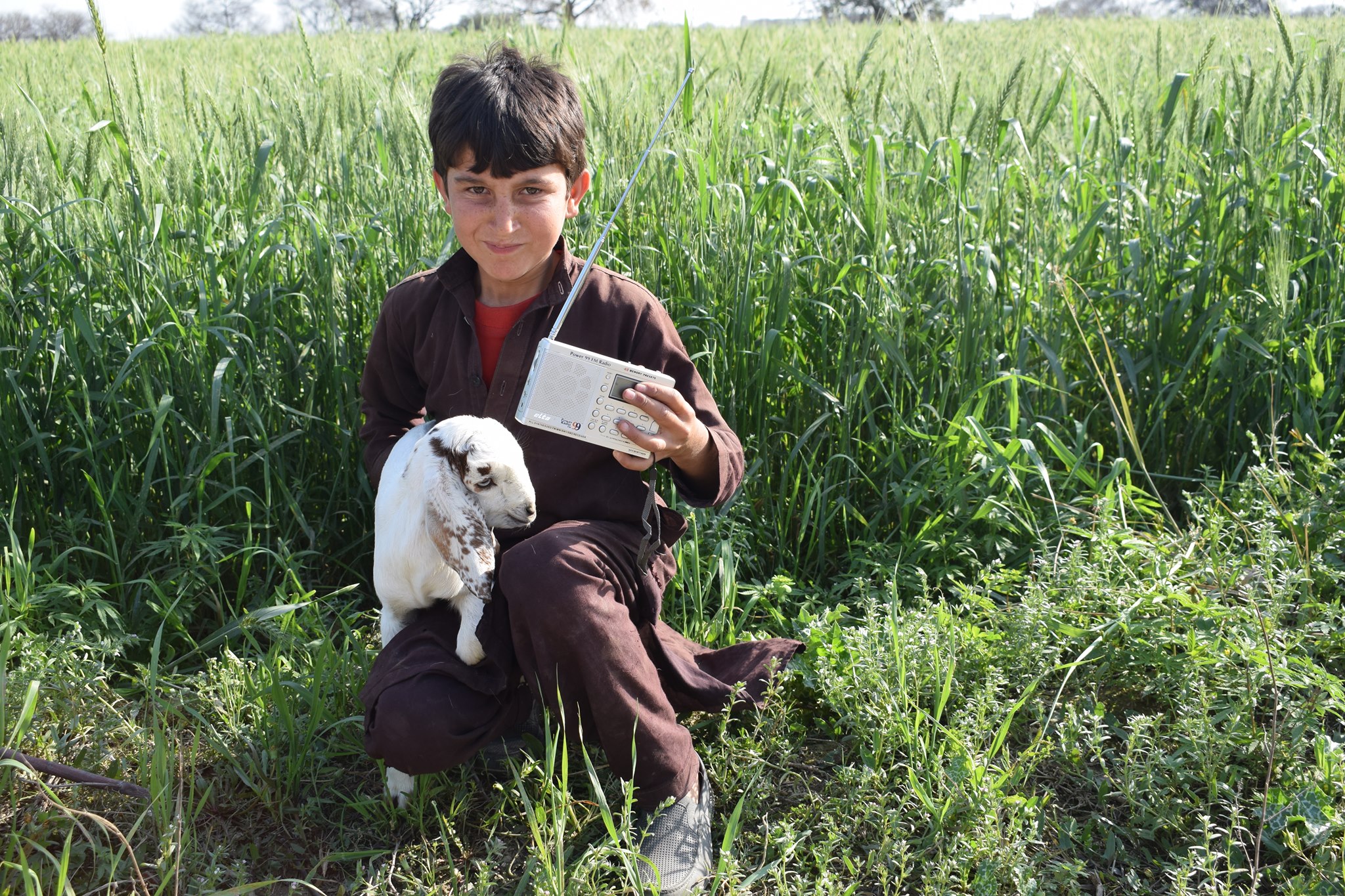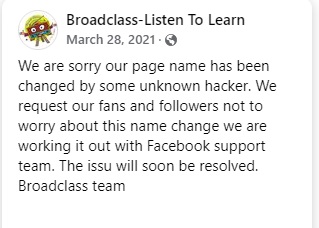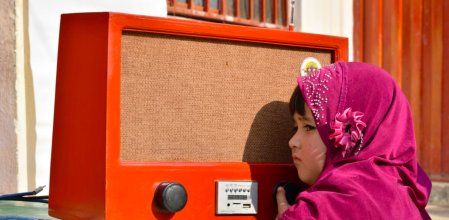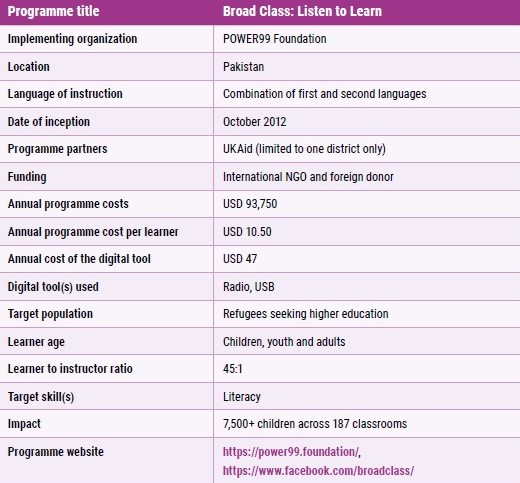When I got the chance to write in a public blog, it did not take me much time to decide on a topic. I immediately decided I want to discuss if we can use Information, Communication, and Technology (ICTs) to help refugees lead a better life. The answer is yes, we can. Aiding in a humanitarian setting has always been linked to well-established organizations such as the United Nations, Non-governmental organizations (NGOs), international donors, and stakeholders. The next question is, can these establishments support local ICT innovations?
Information and Communications Technologies for Development (ICT4D) is defined as “the application of any entity that processes or communicates digital data in order to deliver some part of the international agenda in a developing country” (Heeks, 2017, p.10). This definition is mainly focused on delivering the development agenda to the global south countries. This brings up an ethical principle, which is how we allow people of developed countries to take part in their own development (Heeks, 2017), and how to include them in their own development plan. Allowing people to identify their own needs is more efficient than organizations planning to them what they think they need. Accordingly, to use ICT in a positive way, is to support localization, or in other words, community-led ICT innovations.
When reading about humanitarian work in emergencies, we find that the humanitarian sector did not provide an agreed upon definition of “community-led” or “local organization” (Relief web, 2022), as a result, each organization created its own definition as well as criteria. However, what is clearly agreed upon is that localization is a priority within the humanitarian sector because locals get involved in tailoring solutions fit for their context, which will increase effectiveness of the solution (Relief web, 2022).
Community led innovations face many challenges, one of which is funding. The funding that comes from well-established entities and humanitarian organizations is usually used to bring large-scale ICT innovations and/or private sector-led innovations to humanitarian settings (Relief web, 2022). Funding of community led innovations falls under what is called digital inclusion, which ensures that benefits of ICT will be shared by all “Support for inclusive digital innovation (IDI) including IDI partnerships, funding, information flows, and promotion of inclusive digital innovation design and usability principles” (Heeks, 2017, p.77). As Heeks explains further, financing ICT4D projects depends on different types of financing and each type should be appropriate to the project phase. For instance, public funding should be used to cover projects that contribute to the development goals and the return of the development should justify the investment. (Heeks, 2017). Humanitarian organizations have not made sufficient efforts to create adequate funding schemes for local organizations which can easily affect the funding sustainability of the project (Relief web, 2022). The new humanitarian wrote that in 2023, humanitarians are taking tiny steps to move forward with localization (Richardson, 2023). Locals are now discussing means for funding and support. International NGOs are considering new rules on when to provide support directly and when to leave it up to local communities to lead the humanitarian aid (Richardson, 2023).
One of the innovative ICT4D projects that has been taking place since 2012 is “Broad Class, Listen to Learn”. The project is run by a team at Power99 Foundation Islamabad, the first independent radio station in the country, that began broadcasting in 2003 (Butt, 2019). They created an interactive radio program that helps teachers and students who live in rural or isolated areas (Butt, 2019) where attendance of schools is low, and teachers need support and training. This project is meant to serve 1.4 million Afghan refugees who are hosted in Pakistan (UNHCR, 2020) besides the Pakistani communities living in the rural areas. The aim of the project is to “transform education practices in Pakistan, creating a more equitable educational system that provides opportunities to marginalized children both in and out of schools” (UNESCO, 2022). The project was funded by Japan Social Development Fund (Broad Class – Listen to Learn, 2022).

The sustainable development goals where mainly derived to better serve the term “Development” in ICT4D, as explained by Richard Heeks. The goals are shaped around “environmental sustainability” and “social justice” for the people suffering of inequality (Heeks, 2017). The Broad Class, Listen to Learn project stands as one positive example on how ICT can serve development. As stated in the project description, the program helped secure fragile communities by engaging them and their families in a teaching process that will eventually help them move out of poverty and conflicts. The project is also intended to improve the gender inequality that Pakistan is suffering from in its rural areas. The project is run by Ms Fakhira Najib and other female characters that have been chosen as role models and teachers in the project to empower the women role in the community (Broad Class – Listen to Learn, 2022).
The first phase of this project costed 30,000 USD to start in Abbottabad, Pakistan. This has successfully impacted 4,963 students in 53 schools, and 127 teachers under its program. Based on this success, further amount of 200,000 USD was received to widen the project and include 187 public school classrooms covering KG, Grade I, and Grade II in Abbottabad district. Lessons are broadcasted on air in around 18 districts in Pakistan (Broad Class – Listen to Learn, 2022).
The inaccessibility of internet and illiteracy of technology were a major challenge facing this project; accordingly, radio service was chosen for areas where there was no internet. Wooden radios with batteries were used in areas where electricity was unstable. In areas where there was internet service, the program used Facebook and WhatsApp groups to provide parents with course content. Facebook and WhatsApp were both leveraged during COVID-19 times to send the parents specific guidance (Broad Class – Listen to Learn, 2022). Internet connectivity is now widespread in developing countries, and mobile phones are almost ubiquitous: far more people now have access to a mobile than they have to sewerage, piped water or electricity” (Heeks, 2017, p.1). It is argued that people and communities who cannot access or cannot afford ICT, are facing what is called digital exclusion. This digital exclusion will lead to social exclusion and vice versa (Njoki & Wabwoba, 2015c).
When I accessed the Facebook page of the project, the first pinned announcement was “We are sorry our page name has been changed by some unknown hacker. We request our fans and followers not to worry about this name change we are working it out with Facebook support team” (Facebook, 2021). This brings us the risk of cybersecurity.

In his explanation of ICT4D policies, Heeks identifies patterns to control levels of cybercrime (Heeks, 2017). Managing cybersecurity is very important for any organization. Risk assessment needs to be identified and accordingly cybersecurity measures must be taken. Every organization should have clear policies on how to access and protect its data (Vasiu & Vasiu, 2018).
This program is a symbol of the positive impact of ICT when utilized rightfully. Accordingly, I quote the concluding notes of Kevin O’Sullivan in his book the NGO Moment “if there is no time to pause, and to analyze, and review, how can change occur?” (O’Sullivan, 2021). The Broad Class program was awarded the coveted award in the 4th Annual Multi-Stakeholder Forum on Science, Technology and Innovation on the Sustainable Development Goals exhibited at UN Headquarters, New York, USA in May 2019. Also in May 2017, the program was mentioned in the presented paper on Language, the Sustainable Development Goals, and Vulnerable Populations (Explore Innovations, 2023).
Acknowledgment and thank you note
I own a diary; I note down my thoughts and reflections in many things that interest me in the world. When I was asked to contribute to a blog, I was so excited that I will get to share some of my reflections with the outer world.
The group I have worked with were very helpful and patient and extremely innovative. The discussions we had online and offline were eye opening and adding more rich ideas to the ideas I have.
Writing for the public has a different taste, it pushed me to further read and find good readings, theories, and literature to complement my thoughts. The comments received from colleagues and other readers were mind intriguing and added more questions to my quest.
Finally, being a communication person, I was always concerned with the material I am producing, however the exercise of building and running a blog has added sense of responsibility and touch of design to my communication skills. After the exercise, I understand that it is a package, what I write and the way it comes out to the world is very important. What stands as a good coincidence, is that this course is about ICT4D, and the new technology available for creating a blog is a living example of how technology can make things easier and get us forward with sending out our thoughts and messages to the world.
It was a very useful experience to me, maybe the timing was not in my benefit because of overlapping work emergencies, however this is a lesson learnt. Time management is important in this career. If I have readers waiting to read what I write, I have to respect them and manage the time to give them what they want, that is part of the active engagement and keeping the link that can lead to change.
Thank you
Works cited
BroadClass – Listen to Learn. (2022, August 9). Global Development Network. https://www.gdn.int/broadclass-listen-learn
Butt, A. R. (2019, November 12). ‘Broad Class-Listen To Learn’ Pakistan Makes It To The HundrED. PhoneWorld. https://www.phoneworld.com.pk/broad-class-pakistan/
Country – Pakistan (Islamic Republic of). (n.d.). https://data.unhcr.org/en/country/pak
Explore innovations. (2023, January 8). https://hundred.org/en/innovations
Facebook -(n.d.). Facebook. https://www.facebook.com/
Heeks, R. (2017). Information and Communication Technology for Development (ICT4D) (Routledge Perspectives on Development) (1st ed.). Routledge.
Leveraging innovative technology in literacy and education programmes. (2022, November 4). https://uil.unesco.org/leveraging-innovative-technology-literacy-and-education-programmes-refugees-migrants-and-internally
Njoki, M. M., & Wabwoba, F. (2015a). The Role of ICT in Social Inclusion: A Review of Literature. International Journal of Science and Research (IJSR), 4(12), 380–387. https://doi.org/10.21275/v4i12.nov151897
O’Sullivan, K. (2021). The NGO Moment (Human Rights in History). Cambridge University Press.
Richardson, W. (2023, January 4). What’s on our aid policy radar in 2023. The New Humanitarian. https://www.thenewhumanitarian.org/analysis/2023/01/04/aid-policy-trends-to-watch-in-2023
Technologies in Humanitarian Settings: Supporting Community-led ICTs (December 2022) – World. (2022, December 31). ReliefWeb. https://reliefweb.int/report/world/technologies-humanitarian-settings-supporting-community-led-icts-december-2022
Vasiu, I., & Vasiu, L. (2018). Cybersecurity as an Essential Sustainable Economic Development Factor. European Journal of Sustainable Development, 7(4). https://doi.org/10.14207/ejsd.2018.v7n4p171
Photos credit:
Featured image: https://www.gdn.int/broadclass-listen-learn
Photo in post: Broad class listen to learn Facebook page
Project table: https://uil.unesco.org/leveraging-innovative-technology-literacy-and-education-programmes-refugees-migrants-and-internally


